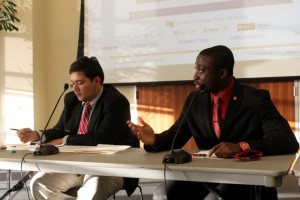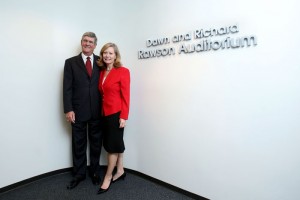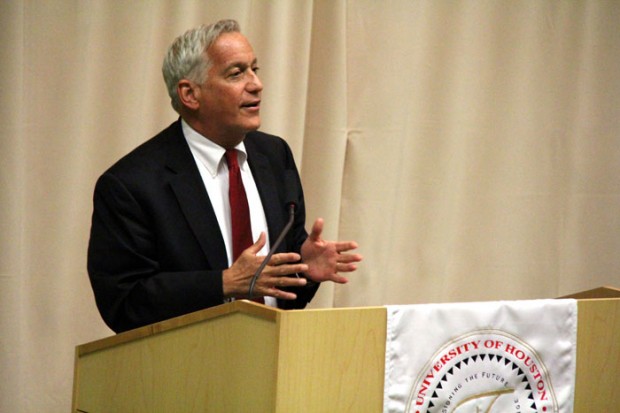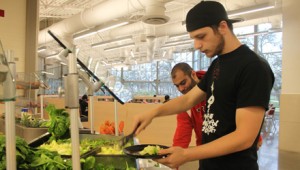Safety was the hot topic at Monday’s debate between Student Government Association presidential candidates.

Eduardo Reyes (left) and Cedric Bandoh (right) discussed student’s safety on campus in Monday’s presidential debate. | Shaimaa Eissa/The Daily Cougar
Both Senator Eduardo Reyes and SGA President Cedric Bandoh claim that their strongest issue is safety and security.
“You can’t expect students to be unsafe on campus,” said Reyes, an economics sophomore. “You have to walk half a mile to the nearest call box and if you’re ever in a situation where you need one that’s scary, that can be life or death.”
In response, Bandoh said he wants to bring back a student program that came out in the early 2000s.
“It’s unacceptable to have any of our emergency equipment not working,” Bandoh said. “But something that’s big on our platform this year is that I think it’s time to bring back Cougar Patrol.”
“We currently have a similar program but there are many complaints about wait times. The flip side is that student organizations need to take a hold of this, and it’s a great way to bring the campus together.”
Another issue addressed was the Reyes-McCartney opposition to the UH phone app and ImproveUH, the new virtual town hall.
Bandoh made it clear these were decided on as a group within the senate.
“One thing that I’ve learned is that any time you attempt to change the status quo is that you’re going to have people that aren’t happy,” Bandoh said. “I’ve looked over some of the things on the other party’s platform, on things they may or may not be happy about, but what we do in SGA is done as a team, we’ve always done things together as a group. Everything that we’ve done has been in connection with our senators.”
The two offered insight on where they differ.
“I think that where we may disagree is that I understand with my experience is that these problems are multi-faceted. They take time,” Bandoh said. “Change takes time. What we can do is come up with solutions, but it may take time to realize them.”
In response, Reyes said that he would like to see permanent changes in SGA.
“Constantly, over and over again we hear the phrase, ‘SGA cleans house.’ We need to keep house clean. Changing our bylaws and redoing them every month is not the way to do it,” Reyes said.
The polls will be open from 9 a.m. to 7 p.m on Tuesday and Wednesday. Locations include the University Center, University Center Satellite, M.D. Anderson Memorial Library, Campus Recreation and Wellness Center, the Moores School of Music and the Science and Engineering Research Center.
news@thedailycougar.com






